skip to main |
skip to sidebar
 SANTA ANA - A former student who took pictures of couples hugging at his Garden Grove high school to bolster claims that gay but not straight students were punished for the display of affection testified Tuesday that he had no proof administrators saw but ignored the acts among heterosexuals.
SANTA ANA - A former student who took pictures of couples hugging at his Garden Grove high school to bolster claims that gay but not straight students were punished for the display of affection testified Tuesday that he had no proof administrators saw but ignored the acts among heterosexuals.
The photos taken by William Vo at Santiago High School were cited as examples of disparate gay-straight treatment during a news conference at the American Civil Liberties Union of Southern California office in Los Angeles last year to announce Charlene Nguon's lawsuit against the Garden Grove Unified School District and nine school officials.
The suit was filed on Sept. 7, 2005, and centers on events in the 2004- 05 school year.
Nguon, now 18 and attending a community college, alleged she was subjected to discriminatory discipline that ultimately led to expulsion, although she finished out her senior year at Santiago.
Vo, now a student at Cal State Long Beach, was the second witness in a case that will be decided by U.S. District Judge James Selna without a jury.
The suit also alleges that former Santiago principal Ben Wolf violated Nguon's privacy when he told her mother about her sexuality during a meeting in 2004.
Without a jury hearing the case, most of the testimony is contained in previously taken depositions, along with cross-examination by the district's attorney, Dennis Walsh.
Walsh questioned Vo about his appearance on a television show in which he accused the district of picking on Nguon and her girlfriend, and gave "the impression" that he knew all the facts of the case first-hand.
Vo recalled an occasion when Nguon and her girlfriend, Trang Nguyen, were ordered to attend school on a Saturday after the two hugged.
But when asked to describe another incident, Vo said, "Specifics I don't remember. What happened in general I could remember."
Asked about kissing, Vo said, "I've never seen them kissing on campus."
Walsh pointed out that Vo said in his deposition that he saw the couple holding hands, hugging and "kiss(ing) for five seconds or less."
Vo was asked about his photographs, two of which were marked to indicate that heterosexual students were hugging while standing in front of the administration office windows.
"You wanted to show couples making out and hugging in front of the staff?" Walsh asked Vo.
"Along those lines, yes," he replied.
Vo admitted he had no evidence that administrators ever saw the acts, although he did say that at least one was taken just after school when staff should have still been inside the building.
One photo showed an embracing couple almost directly in front of an adult woman on campus, but Vo conceded he did not know her identity, whether she worked at the school or if she had any responsibility for dealing with displays of affection.
Walsh also asked about a series of questions concerning Internet chats Vo had with Nguon, in which they talked about how difficult schoolwork was and how easy it was to procrastinate.
Walsh said the questions go to the issue of damages, to show that Nguon had other stresses in her life other than claims of unequal school discipline.
Vo denied Nguon ever told him that she was angry at Nguyen, that they had broken up or that she had feelings for a boy.
He also said Nguon never told him she was a lesbian, but said he knew that she and Nguyen "had a relationship going on."
"That's their business, not mine," he said. "It's their personal life."
Nguon's attorney, Christine Sun, has said that her client was an A student, but her grades slipped to Cs when discipline against her was stepped up.
Lawsuit damages, she said, could hinge on how much the discipline affected Nguon's grades.
In an earlier ruling, Selna said the district is immune from liability on punitive damages, but he would not bar or dismiss those claims against the individual defendants.
The first trial witness was Carolyn Laub of the Gay-Straight Alliance Network, which is also a plaintiff in the lawsuit, along with Nguon's mother, Crystal Chhun.
Laub said her organization consults with other districts in the state on gay discrimination and harassment issues. She testified that the organization did not conduct its own investigation of Nguon's claims, nor did it contact the school district to get its side of the story.
Laub said the alliance does not condone violation of school rules by students, but is concerned about policies unfair to some students and carried out "in an unfair manner."
Testimony is the trial is expected to conclude on Dec. 5.
Alan Trudell, a spokesman for the district, has denied that the district engages in discriminatory practices.
Polices about appropriate conduct on school campuses are spelled out in state and local codes, district officials said.
On the privacy claim, district officials said in court papers that Nguon lost that right to privacy because she was openly gay on campus.
from The North County Times
 Helping to end a longstanding clinical debate, a new study finds that stopping and then restarting HIV drug therapy doesn't work.
Helping to end a longstanding clinical debate, a new study finds that stopping and then restarting HIV drug therapy doesn't work.
Not only are patients more likely to die of AIDS when their antiretroviral treatment is interrupted, they are, surprisingly, also more likely to suffer drug side effects when therapies are resumed, the study found.
Experts had once speculated that giving patients "vacations" from the powerful drug cocktails might be of benefit.
However, the new trial "confirms present practice, in that most doctors still are of the opinion that once you start, you don't stop," said Dr. Michael Horberg, director of HIV/AIDS policy, quality and research at Kaiser Permanente Health Plan in Oakland, Calif.
"It looks like the benefits of continuing antiretrovirals in continuing to suppress levels of virus are large," added Dr. Roy Gulick, director of the HIV Clinical Trials Unit at Weill Cornell Medical College in New York City. "What we have here are unanticipated toxic effects or non-HIV-related effects that are associated with stopping medications."
"What that does to the field is makes us rethink stopping the medications, really, in any clinical situation," Gulick said. Stopping and starting treatment is ill-advised not only because it promotes HIV progression but because of "the risk of other kinds of toxicities," he said.
When antiretroviral therapies were introduced, they represented a huge advance in the treatment of infection with HIV, the virus that causes AIDS. However, the drugs do carry serious side effects, including major metabolic and cardiovascular complications. The therapy is also expensive, difficult to comply with, and can promote the development of resistant viral strains.
Experts have long debated whether the therapy could still be effective and less toxic if it were interrupted when CD4+ or T-cells -- the killer immune cells that HIV destroys -- rose above a certain level. In theory, patients might restart their therapy if and when CD4+ levels declined too far. A steady drop in CD4+ cells indicates that HIV infection is progressing to AIDS.
To test that strategy, the authors of the new study, the largest of its kind, compared two treatment methods. In one group, doctors suppressed blood levels of HIV long-term by having patients continually take medication. The other group was placed on a "stop and start" regimen, depending on changes in their CD4+ levels.
The researchers randomly assigned 5,472 HIV-infected individuals who had a CD4+ cell count of more than 350 cells per cubic millimeter of blood to receive antiretroviral therapy either continuously or episodically.
Those in the episodic group only received treatment when their CD4+ count dipped below 250 cells per cubic millimeter, and continued receiving therapy until their count increased to more than 350.
The study was designed to last six years but the results were so striking that it was halted after only 16 months. That's because patients in the episodic group were 2.6 times more likely to develop an opportunistic disease or to die of AIDS than people in the continuous group.
Results of the study are published in the Nov. 30 issue of the New England Journal of Medicine.
"There were more clinical events in terms of AIDS episodes and deaths in the group that started and stopped, but, even more surprising was that there was also more toxicity, which is exactly the opposite of what they thought [would happen]," Gulick said. "That was an extremely important finding."
Added Dr. Joel Gallant, professor of medicine and epidemiology and associate director of the AIDS Service at Johns Hopkins University School of Medicine: "The strict interpretation is that you probably shouldn't interrupt therapy once you start and, if you do, you should restart it much sooner than 250. The broader interpretation would be that people are better off on treatment than not on treatment."
from Forbes
 BAGUIO CITY, PHILIPPINES - Motorists trapped in the late afternoon rush hour were shocked on Thursday when artists, nursing students and gender rights activists wove through traffic along downtown Baguio carrying a 30-foot condom on their shoulders.
BAGUIO CITY, PHILIPPINES - Motorists trapped in the late afternoon rush hour were shocked on Thursday when artists, nursing students and gender rights activists wove through traffic along downtown Baguio carrying a 30-foot condom on their shoulders.
The colorful condom was Baguio's contribution to the celebration of World AIDS Day on Friday, said Eden Divinagracia, executive director of the Philippine Non-Government Organization Council on Population Health and Welfare (PNGOC), which financed the creation of the giant condom.
Artists Roger Bibal, Kawayan de Guia, Allan Manalastas and Kigao Rosimo stretched wads of felt paper over a huge bamboo frame to simulate a condom.
On the condom's blue field, the artists painted yellow and white "sperm" cells, and drew a smiling orange face on the "condom's" tubular front end.
Some pedestrians froze on the streets when they saw the condom.
"I thought it was a very long bullet until I saw 'Safe Sex' painted [on the left section of the] condom. I could not stop giggling," a student said.
But government doctors promoting local reproductive health programs expressed reservations about the stunt with some calling it an "outrageous march."
Dr. Cecilia Brillantes, administrator of the city's social hygiene clinic, said AIDS awareness advocates had long shifted their advocacy from promoting condoms to securing finances for ailing AIDS patients.
"We admire the artists for constructing that large condom. But while we used to lobby for an ordinance that compels a 100 percent use of condoms in Baguio, we are now seeking a law that would create a trust fund to help AIDS victims," she said.
"We feel the trust funds have become a more important agenda than promoting condom use, although we are not stopping the advocacy for a condom [use] law."
The PNGOC condom march occurred on the same day a Baguio-based AIDS victim died in a local hospital, Brillantes said.
She said the victim's family could not afford a proper burial, much less a cremation, which is required by law. "I advised the victim's family to solicit funds from [local councilors], so we could give the victim a pauper's burial, while we lobby for the trust fund for future victims," she said.
Divinagracia said experts recorded 2,500 HIV-AIDS cases in the Philippines this year. National AIDS surveillance records showed 23 people tested positive in Baguio hospitals from 1992 to 2006, Brillantes said.
"Half of these victims were overseas contract workers. [Thursday's] death meant 12 of them have already died from the disease, so we want local governments to focus on policies that will help government doctors take care of these patients," she said.
She said the giant condom was not part of the city's official World's AIDS Day celebration on December 6.
Brillantes said Baguio's young generation understood the need for condoms but local politicians feared that condom promotion could be easily equated with encouraging sexual proximity.
"That is why we are cautious about outrageous gimmicks because we want to make sure everyone advocating AIDS awareness sends the right message," she said.
Divinagracia said the giant condom also championed the success of the Philippines' safe sex advocacy. She said the medical community acknowledged a "dramatic change in the past 10 years" since condom use was heavily promoted.
"Of course, we cannot [quantify] how much condoms [have been] used by checking the trashcans [all over the Philippines], but social hygiene clinics note a decrease in the cases of sexually transmitted diseases," she said.
She said an increase in condom use may explain the drop in recorded STD cases.
from INQ7 Network
 Rabbi Elliot Dorff concedes that his opinions about ordaining gays and restricting some sexual activity are likely to upset both traditionalists and liberals in Judaism's Conservative movement.
Rabbi Elliot Dorff concedes that his opinions about ordaining gays and restricting some sexual activity are likely to upset both traditionalists and liberals in Judaism's Conservative movement.
In a much-anticipated event, an international rabbinical council is scheduled next week to debate and vote on possibly dropping the unevenly enforced bans against gay rabbis and same-sex commitment ceremonies.
Dorff, rector of the University of Judaism in Bel-Air and a well-known bioethicist, is one of the lead authors of a position paper that would end the bans. But, keeping some tradition of rabbinical interpretation of the Bible, his proposal would prohibit anal sex between men. Other forms of consensual, monogamous sex would be permitted.
Jewish leaders predict this could be a watershed moment for Conservative Judaism, which occupies the theological middle ground between Orthodoxy's strong traditionalism and Reform's liberalism.
It also is another example of Christian and Jewish denominations struggling to be more welcoming of gays while abiding by what some view as scriptural injunctions against homosexuality.
"It is a compromise, no question," Dorff, 63, said recently at his Beverly Hills home. It seeks "to maintain the continuity of the law to the extent that we can, while at the same time getting rid of the harm it causes."
He cited the pain gays feel at not being fully included in Jewish life and the loss of Conservative movement members, both gay and straight, who don't agree with current policies.
More traditionalist Conservative Jews contend that ordaining gays would violate what they see as the denunciation of homosexuality in Leviticus: "Do not lie with a man as one would lie with a woman; it is an abomination."
Conversely, some rabbis are seeking to lift the bans, with no sexual restrictions, as the Reform movement did in 1990.
Dorff's compromise, as he predicted, is being criticized from both other sides as logically incoherent and possibly open to mockery as bedroom policing.
Still, observers say, the stance by Dorff and his two co-authors may well pass when the Committee on Jewish Law and Standards, which is part of the Conservative movement's Rabbinical Assembly and guides general policies, convenes Tuesday and Wednesday in New York. But because only six of the panel's 25 votes are needed to approve a position paper, or teshuvah — from the Hebrew for "answer" — it is likely that a contradictory policy will be adopted as well. Such a split result would allow rabbis and seminaries to choose which course to follow.
The authors of Jewish law are always affected by societal changes, said Dorff, who has a doctorate in philosophy from Columbia University.
Dorff said he came to know many gay men in the 1980s during pastoral work with AIDS patients. His thinking also was influenced by research showing that people are born homosexual, as demonstrated, he said, by one of his four children, a lesbian who has had a child by artificial insemination.
A restriction on gay anal sex, he said, is similar to rules against heterosexual intercourse during menstruation. But requiring celibacy would be, he said, cruel and "very un-Jewish."
Whatever the vote's outcome, some Conservative Jews fear it could trigger further erosion in their U.S. ranks of about 1.3 million. Conservative Judaism used to be the largest wing of American Jewry but now represents about 33% of Jewish households, compared to 39% for Reform, according to the 2001 National Jewish Population Survey.
Some Canadian synagogues have talked of leaving the Conservative movement if the bans are lifted, echoing the splintering in the Episcopal Church over the 2003 consecration of a gay bishop in New Hampshire.
"Am I worried? You bet," said Rabbi Joel Roth, a professor at the Jewish Theological Seminary in New York, one of two Conservative seminaries in North America. (The other is Ziegler School of Rabbinic Studies at Los Angeles' University of Judaism.)
Roth, author of a motion that upholds the ban on gay clergy, said the decision would define whether Conservatives remain halachic, meaning based on Jewish law. "And I don't think there is anything more important than that," he said.
In Roth's view, Jewish law forbids all homosexual sex. "It is as unacceptable to ordain people who thought you could eat cheeseburgers," he said, referring to kosher rules against mixing meat and dairy. Homosexuals should be welcomed at temples, but a moral God can demand their celibacy, he said.
But others discount any talk of mass defections; they say similar warnings were unfulfilled when Conservative Jews began to ordain women in 1983.
Some leaders say Dorff's proposal does not go far enough.
Rabbi Mark S. Diamond, a Conservative rabbi in Los Angeles, described Dorff as "one of the giants of Jewish scholarship in our movement and a mensch of the first order." But Diamond supports gay ordination without the restriction on sexual activity and said he feared that Dorff's compromise would confuse people. (Diamond said he was expressing his own opinion and not that of the Board of Rabbis of Southern California, of which he is executive vice president.)
Rabbi Jerome Epstein, executive vice president of the United Synagogue of Conservative Judaism, which represents about 800 congregations in the U.S. and Canada, said there was a "strong chance" that contradictory measures on gays would pass.
Such an outcome would be all right with Dorff, whose co-authors were rabbis Daniel Nevins of Michigan and Avram Reisner of Maryland. "I do think it's wrong to pretend we're united where we are not," Dorff said. "And you know what? We will get along fine as a movement."
The emotions around the issues were evident last week when the Israeli Supreme Court ordered the government there to register same-sex marriages performed abroad. The decision was denounced as a moral outrage by Orthodox leaders but praised by advocates of civil marriages in Israel, where only religious ceremonies are allowed.
American Christian churches are grappling with similar questions about the role of gays in religious life.
Earlier this month, the American Catholic bishops said again that non-celibate homosexuals should not receive Communion, but they encouraged the baptism of children of same-sex couples. The Baptist State Convention of North Carolina, the nation's second-largest association of Baptists, the same week voted to cut ties with "gay-friendly" churches.
In June, after decades of contention, the Presbyterian Church USA moved to allow local governing bodies to decide whether to ordain homosexuals. Last year, the United Methodist Church removed a Pennsylvania woman from the ministry for being a lesbian.
Much of American Judaism operates with looser governance. In 1992, the Conservative Jewish panel voted against gay commitment ceremonies and ordaining gays but said they were welcome in synagogues and schools. Some Conservative synagogues still hire gay rabbis and some allow the commitment rituals.
The Ziegler School has rejected openly gay applicants but Dorff, its former dean, says he knows students who remained under a kind of "don't ask, don't tell" policy. If the rabbinical panel gives the go-ahead, the Los Angeles school will enroll openly gay students, he said.
from The Los Angeles Times
 BURLINGTON, VERMONT - A judge has dismissed hazing charges against four University of Vermont fraternity members accused of making prospective members wear cowboy outfits while they were taunted with homophobic language.
BURLINGTON, VERMONT - A judge has dismissed hazing charges against four University of Vermont fraternity members accused of making prospective members wear cowboy outfits while they were taunted with homophobic language.
Vermont Judicial Bureau Judge Charon True ruled police hadn't proved the allegations. The Judicial Bureau handles traffic violations and other civil complaints, including hazing violations.
"To accuse someone or an organization of hazing, you first have to prove that the conduct occurred in the context of some sort of initiation or membership or qualification procedure. The university failed to prove that," said the students' attorney, David Sleigh. "Second, you have to prove that the activity was directed at a specific student or students and was done so with intent of causing mental or physical harm. The university didn't have a single declaration that any person was harmed."
UVM officials are considering an appeal.
"I'm confident that we understood the law and the context of the case. We have until January 7 to appeal," said UVM Police Chief Gary Margolis. "It's a new law and this was the first time it's been tested, so I think it requires full judicial scrutiny to make sure it's applied correctly."
The four students -- Scott Curley of Bridgewater, Mass.; Eric Freedman of West Simsbury, Conn.; Bill Holohan of Branford, Conn.; and Geoffrey Robinson of Middletown Springs -- were given civil tickets in May after a police investigation into a March 2 party at the Phi Gamma Delta fraternity in Burlington. Witnesses told police the theme of the party was the film "Brokeback Mountain," which has a gay theme.
The fraternity has been placed on interim suspension pending the university's review of the case, said UVM spokesman Jeffrey Wakefield.
The Vermont Legislature passed its anti-hazing law in 2000, a year after UVM upper-class hockey players forced freshman to drink warm beer until they vomited and hold each other's genitals.
from The Boston Globe

 A German firm has developed a spray-on condom for all your lifestyle needs. The liquid condom comes in an aerosol can that you spray onto the organ in question. A few seconds later, the liquid solidifies into the familiar latex and forms a tight seal. The company says it's a great time saver and is easier to use than traditional condoms. It's still in the testing phase (in fact, they're looking for volunteers right now) so it might be a while before it hits the neighborhood drug store. Now there's no "but I hate putting it on" excuses. And anything that promotes safety and responsibility is A-OK in our books (usually).
A German firm has developed a spray-on condom for all your lifestyle needs. The liquid condom comes in an aerosol can that you spray onto the organ in question. A few seconds later, the liquid solidifies into the familiar latex and forms a tight seal. The company says it's a great time saver and is easier to use than traditional condoms. It's still in the testing phase (in fact, they're looking for volunteers right now) so it might be a while before it hits the neighborhood drug store. Now there's no "but I hate putting it on" excuses. And anything that promotes safety and responsibility is A-OK in our books (usually).
from Gizmodo
 Daniel Craig is urging movie bosses to revolutionise the James Bond franchise by including a gay scene involving the superspy in the follow-up to Casino Royale. The heart-throb actor has also reportedly told studio chiefs he is prepared to film a full frontal nude scene to please both his male and female admirers. He says, "Why not? I think in this day and age, fans would have accepted it. "I mean, look at (British TV series) Doctor Who that has had gay scenes in it and no one blinks an eye."
Daniel Craig is urging movie bosses to revolutionise the James Bond franchise by including a gay scene involving the superspy in the follow-up to Casino Royale. The heart-throb actor has also reportedly told studio chiefs he is prepared to film a full frontal nude scene to please both his male and female admirers. He says, "Why not? I think in this day and age, fans would have accepted it. "I mean, look at (British TV series) Doctor Who that has had gay scenes in it and no one blinks an eye."
from Contact Music
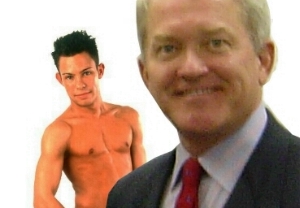 In a major new development confirming our theory that radical gay activists were behind the Mark Foley scandal, the mysterious source responsible for exposing Foley's behavior has been identified as an employee of the Human Rights Campaign. This is the radical homosexual organization that functions as an adjunct of the national Democratic Party.
In a major new development confirming our theory that radical gay activists were behind the Mark Foley scandal, the mysterious source responsible for exposing Foley's behavior has been identified as an employee of the Human Rights Campaign. This is the radical homosexual organization that functions as an adjunct of the national Democratic Party.
Conservative bloggers discovered that the source, who operated stopsexualpredators.com, had used the Internet facilities of the Human Rights Campaign (HRC) to post the Foley emails that found their way into the hands of Brian Ross of ABC news and led to the congressman's resignation. HRC issued a statement saying that when this information came to their attention, "We investigated the matter, determined that HRC resources had been inappropriately used, and let him go. No one at the Human Rights Campaign, other than this individual, had any knowledge of his activities."
One of the board members of the HRC is Jeff Trandahl, the former House clerk who has inside information about the scandal and has testified before the House Ethics Committee. During his "Republican" career on Capitol Hill, Trandahl had contributed financially to the Gay & Lesbian Victory Fund, a group supporting mostly Democrats for public office.
Citing a source in the case, ABC's The Blotter reported that Trandahl had identified Foley and Congressman Jim Kolbe (R-Ariz.) as being among a small number of "problem members" of Congress who "spent too much time socializing with pages, taking them to dinner or sporting events outside of official duties."
All of this means that there was inside information, available to radical gay activists allied with the Democratic Party, which could be used to create scandals for Republican gay members of Congress. Of course, the problem wouldn't have surfaced in the first place if Congressional Republican leaders had not been protecting homosexuals in their ranks. House leaders knew that Foley was a homosexual but permitted him to serve as a co-chair of the House Caucus on Missing and Exploited Children. In the case of Kolbe, who announced that he was a homosexual after being threatened with "outing" by a radical homosexual publication, House leaders still defended him.
Kolbe, who is retiring from Congress, is under investigation by the U.S. Attorney in Phoenix because of a 1996 camping trip he took with two male former pages, both of them 17-years-old. MSNBC reported that "One participant, who requested anonymity, said he was uncomfortable with the attention Kolbe paid to one of the former pages. He was 'creeped out by it,' he said, adding that there was a lot of 'fawning, petting and touching' on the teenager's arms, shoulders and back by Kolbe."
Kolbe's alleged corrupt activities go far beyond inappropriate relationships or contacts of a possible sexual nature with former pages. Associated Press reported that Kolbe was up for the job leading the Global Fund to Fight AIDS, even though he had helped determine its funding as chairman of a House Appropriations subcommittee. AP said, "The committee's bill, approved May 25, included $3.4 billion in global assistance to combat AIDS, tuberculosis and malaria, including $445 million for the U.S. contribution to the Global Fund." This figure, advocated by Kolbe, was over twice the amount requested by the Bush Administration.
So Kolbe padded the bank account of an organization that considered hiring him as its executive director.
from Accuracy In Media / Cliff Kincaid
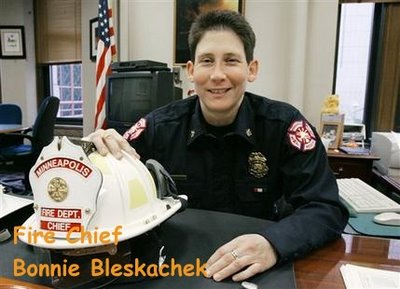 MINNEAPOLIS - A city panel recommended Tuesday that officials fire Bonnie Bleskachek, the nation's first openly lesbian big-city fire chief, in the wake of firefighter lawsuits accusing her of harassment and discrimination.
MINNEAPOLIS - A city panel recommended Tuesday that officials fire Bonnie Bleskachek, the nation's first openly lesbian big-city fire chief, in the wake of firefighter lawsuits accusing her of harassment and discrimination.
Bleskachek had earlier agreed to step down, but the city's executive council unanimously rejected a negotiated deal after a closed meeting.
"She was pretty stunned, because it was a complete surprise," said Bleskachek's attorney, Jerry Burg.
Mayor R.T. Rybak (D) had announced the agreement in a letter to the city's executive council in which he wrote that he no longer had confidence in Bleskachek as chief. Neither Rybak nor City Council members would immediately explain why the deal was blocked.
Bleskachek, 43, was hailed as a trailblazer when she was promoted to the top job two years ago, but her tenure has been troubled.
Three female firefighters have sued, alleging various acts of discrimination and sexual harassment. Two of the lawsuits were settled. Earlier this month, a male firefighter brought another lawsuit, alleging he was denied advancement because he is male and not gay.
A city investigation is ongoing. This summer, a separate investigation by the city's Department of Civil Rights into a 2003 complaint by a male firefighter found it "likely" that the department gave preferential treatment to lesbians or those who socialized with them.
Bleskachek was ill with the flu Tuesday and unavailable for comment. She has denied wrongdoing in the past.
Burg acknowledged that Bleskachek was ready to step down.
"It's been clear for a long time that the job of chief takes energy from her life that she no longer wanted to give it, all things considered," Burg said.
from The Washington Post
 On January 23, 2007, Universal Studios Home Entertainment will release Brokeback Mountain (Two-Disc Collector's Edition) on DVD. The movie revolves around a couple of cowboys that fall in love, yet hide their affection from society, and will feature tons of bonus materials and extra features.
On January 23, 2007, Universal Studios Home Entertainment will release Brokeback Mountain (Two-Disc Collector's Edition) on DVD. The movie revolves around a couple of cowboys that fall in love, yet hide their affection from society, and will feature tons of bonus materials and extra features.
The Brokeback Mountain (Two-Disc Collector's Edition) DVD will feature the following bonus materials:
* Various never-before-seen footage pieces
* Collectible postcards and more
from Press Release
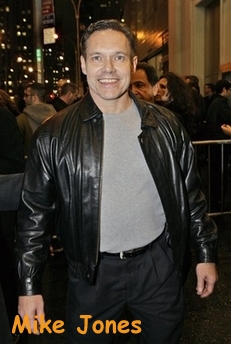 DENVER - The attorney for a former male prostitute who says he had sex with disgraced Colorado Springs pastor Ted Haggard says he doesn't expect his client will face criminal charges.
DENVER - The attorney for a former male prostitute who says he had sex with disgraced Colorado Springs pastor Ted Haggard says he doesn't expect his client will face criminal charges.
Attorney David Lane tells the Denver Post Denver police tried to question his client, Mike Jones, but Jones is referring all questions to Lane, who is NOT talking.
Jones publicly admitted serving as Haggard's prostitute and to helping the pastor obtain the drug methamphetamine. Lane says those admissions could have been used against him.
Jones' statements led leaders at Colorado Springs' New Life Church to fire Haggard earlier this month. Haggard founded the New Life Church in the 1980s and rose to prominence in a powerful alliance of conservative ministers.
from KKTV
 LOS ANGELES - A heterosexual former Los Angeles police officer is suing the department, alleging she was fired after complaining about alleged discrimination by her gay supervisors, according to court papers obtained Monday.
LOS ANGELES - A heterosexual former Los Angeles police officer is suing the department, alleging she was fired after complaining about alleged discrimination by her gay supervisors, according to court papers obtained Monday.
Cindy S. Perez, who alleges wrongful termination, sexual orientation discrimination and retaliation, is asking for unspecified general and punitive damages.
Lt. Paul Vernon, an LAPD spokesman, declined to comment on the lawsuit filed last Tuesday in Los Angeles Superior Court.
"Being that this is a court case is in litigation, there is nothing I can really say about it," Vernon said.
Perez, 38, of Buena Park, was hired by the LAPD as an officer in July 1994 and was assigned to the Pacific Division in 2000, according to her court papers.
"(Perez) was aware that LAPD's Pacific Division was and had been a lesbian-friendly environment and had treated non-lesbian females ... differently," her lawsuit states.
Heterosexual female officers at the division were targeted for harassment and negative employment actions and were not given the same opportunities as lesbians, she alleges.
When Perez filed a misconduct complaint against a lesbian sergeant with a history of sex discrimination complaints against her, Perez was "ostracized, harassed and transferred to another assignment," according to her lawsuit.
When Perez asked the same sergeant a question about a sex crime investigation, the sergeant responded with a sexually explicit comment about a woman's private parts, according to her court papers.
The lawsuit also alleges that Perez was falsely accused by a lesbian lieutenant and a male sergeant of pointing her gun at an officer she was training in December 2003. Those allegations ultimately led to Perez's firing by Chief William Bratton in July 2005, according to the lawsuit.
"This termination was discriminatory and was in retaliation for reporting and opposing discrimination and harassment," Perez stated in papers filed with the state Department of Fair Employment and Housing last November.
from NBC4 TV
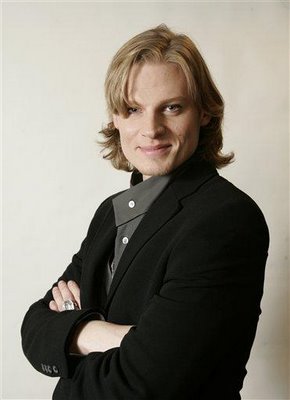 In a story unusual even for a soap opera and believed to be a television first, ABC's "All My Children" this week will introduce a transgender character who is beginning to make the transition from a man into a woman.
In a story unusual even for a soap opera and believed to be a television first, ABC's "All My Children" this week will introduce a transgender character who is beginning to make the transition from a man into a woman.
The character, a flamboyant rock star known as Zarf, kisses the lesbian character Bianca and much drama ensues. The storyline begins with Thursday's episode of the daytime drama.
There have been a handful of post-surgical transgender characters in television shows, including a college professor in the 2001 prime-time CBS series "The Education of Max Bickford" and a model in the short-lived ABC soap opera "The City" in 1996, according to the Gay and Lesbian Alliance Against Defamation. Showtime's "The L Word" currently features a character changing from a woman into a man.
"All My Children" was looking for something new, and knows its audience is always interested in anything to do with sexuality, said Julie Hanan Carruthers, the show's executive producer.
"After 36 years, you start rehashing," she said. "It's inevitable. We didn't want to fall back on the baby-switch story again."
The show wasn't interested in doing something just to be sensational, she said. GLAAD and some transgenders were brought in as consultants in shaping the character, teaching the producers when it is appropriate to call a character "she" even before surgery, she said.
Damon Romine, a spokesman for GLAAD, said he hasn't seen the show yet but feels people involved were genuinely interested in telling the story with dignity. Emotions are so close to the surface in soap operas, and this story can serve a purpose by showing what transgenders go through, he said.
"I think it's groundbreaking and breakthrough television for daytime to put a spotlight on transgender people and tell their story," he said.
"All My Children" could use some attention. Mirroring the decline of daytime dramas in general, its average audience has slipped from 8.2 million in 1991-92 to 3.1 million last year, according to Nielsen Media Research. Particularly last summer, "All My Children" has tried several new characters, said Carolyn Hinsey, editor of Soap Opera Weekly.
"They're trying really hard and they're throwing a whole lot of desperate stuff against the wall to see what sticks," she said.
Actor Jeffrey Carlson portrays Zarf, an American who nonetheless speaks in an exaggerated British accent. He was on the show for one day last summer and was surprised to get a call pitching him the new story.
Carlson said it can be intimidating feeling that he is representing the entire transgender community.
"I worry about missing something, but I guess that would be the same with any character," he said. "I want the `All My Children' audience to go along. It's not for shock value. It's just another person who's story is being told in Pine Valley."
After Zarf establishes a bond with Bianca that leads to the kiss, an angry Bianca tells him she's a lesbian. It triggers something within Zarf about why it made such sense to be falling in love with a lesbian.
It's not clear, Carruthers said, whether "All My Children" will stick with the Zarf character through any surgery; one suspects the reaction of the soap's audience to the story will have a lot to do with it.
"She talks about peace so much," Carlson said of his character. "I hope that she finds some peace."
from The Associated Press

 UNITED KINGDOM - British scientists have developed a revolutionary pill that men could take as a one-off contraceptive just before a date.
UNITED KINGDOM - British scientists have developed a revolutionary pill that men could take as a one-off contraceptive just before a date.
The tablet would prevent a man from being able to impregnate a woman, but within a few hours his fertility would return to normal.
This would make it much more acceptable to men than other 'male pills' under development, which alter hormone levels and have to be taken over the long term.
It is also more likely to be trusted by women as they are not relying on their man having to remember to take his pill every day for it to work.
The hormone-free 'male pill' was inspired by two medicines already in use and so the scientists hope it could be on the market within as little as five years.
Experts believe it could transform family planning by allowing couples to share the responsibility for contraception - a role that traditionally falls to women.
The new contraceptive is likely to appeal to women who are uneasy about the female Pill's ability to raise the risk of strokes, heart attacks and potentially-fatal blood clots.
Critics argue, that men lack women's motivation to prevent pregnancy, making it hard for women to trust them to take a contraceptive pill.
Other male pills are under development but many of them are based on hormones that trick the brain into switching off sperm production.
These are typically being developed as injections, implants and patches.
However the new pill being researched by scientists at King's College London, contains chemicals that prevent ejaculation and could be in tablet-form.
Men could take one daily, just like the female pill, or have one a few hours before sex as a one-off contraceptive.
Sexual satisfaction is not affected and the absence of hormones means that a man's fertility should return to normal within hours of stopping the treatment.
Researcher Dr Nnaemeka Amobi said: "The non-hormonal male pill could be taken when and as needed."
Fellow researcher Dr Christopher Smith said: "If the man was taking the pill over a period of several months and decided to come off it, we would expect his fertility to return just as quickly as if he had taken it on a one-off basis."
The contraceptive was inspired by the observation that some drugs used to treat schizophrenia and high blood pressure also prevent ejaculation.
However, side-effects including dizziness and drowsiness mean these medicines could not be marketed as contraceptives.
After pinning down how the drugs stop ejaculation, the London researchers set about creating tablets that do the same thing but without the side-effects.
Already tested in the lab, it is hoped human trials will start shortly and the pill on the market within the next five years.
Currently, men who want to take responsibility for contraception have limited choice, with their options extending to condoms, a vasectomy, or simple abstinence.
Professor John Guillebaud, one of Britain's leading experts on contraception, described the pill as "a brilliant discovery".
He said its strength lay in its ability to prevent pregnancy without using hormones which could cause side-effects such as hot flushes and moodiness.
If the male pill is successful it could bring in huge amounts of money to King’s College, which owns the rights to the discovery.
Annual world-wide sales of the female Pill are worth £21billion a year.
Rebecca Findlay, of the Family Planning Association, said: "It gets really tiring for women to always be the one in charge of fertility.
"For women, it would be another form of liberation. It's great."
from The Daily Mail
 Tall men face double the risk of developing testicular cancer, according to new research.
Tall men face double the risk of developing testicular cancer, according to new research.
Experts found that those over 6ft tall are far more likely to develop the disease than men under 5ft 6ins. And men even shorter were not at risk.
American researchers studied the links between diet, body size and cancer of the testicles, which strikes down 2,000 men in the UK every year.
According to the study, the taller the man, the greater the risk of developing the form of male cancer. Even men between 5ft 6ins and 5ft 9ins increased their risk by 40 per cent.
But researchers admit they are unclear as to the reasons why.
Testicular cancer is one of the few cancers that affects young men, normally hitting 15 to 44-year-olds.
Cycling champion Lance Armstrong, who is 5ft 11ins, was struck down by the disease in 1996, aged 25. But he fought back to win the Tour de France in 1999 for seven consecutive years. The disease is still fairly rare but cases have already doubled since 1985. If diagnosed early, 98 per cent of patients make a full recovery.
Doctors have long suspected cow's milk as one possible cause. But American scientists from the National Cancer Institute in Maryland, say they found no evidence to link consumption of diary products in early childhood with the the disease. Lead researcher Dr Katherine A McGlynn says the study is important in helping understand the disease because it used a large sample of US servicemen under the age of 45.
Dr McGlynn, of the Division of Cancer Epidemiology and Genetics, said: "The study suggests that risk of testicular cancer is associated with greater adult height."
Men born with an undescended testicle or with a close relative who has had the disease may also be at greater risk of getting it.
from The Mirror
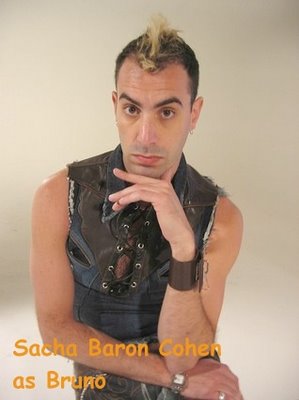 Sacha Baron Cohen's "Borat" has grossed more than $100 million at the box office, but can the British comedian pull off another "mockumentary," this time in the guise of a gay Austrian fashionista?
Sacha Baron Cohen's "Borat" has grossed more than $100 million at the box office, but can the British comedian pull off another "mockumentary," this time in the guise of a gay Austrian fashionista?
Universal Pictures has bet $42.5 million that he can.
Before "Borat: Cultural Learnings of America for Make Benefit Glorious Nation of Kazakhstan" became a box-office sensation, Universal agreed to pay the hefty premium for the actor's next film, "Bruno," which it will market and distribute. 20th Century Fox, the studio behind "Borat," turned down the project, deeming it too expensive.
Universal may already be feeling buyer's remorse. The studio is not scheduled to release "Bruno" until 2008, but a flurry of lawsuits filed against Fox and the "Borat" filmmakers has led to predictions by some legal experts that Universal could be a target too. Some everyday people featured in "Borat" claim they were duped into believing that they were participating in a documentary about American life rather than a spoof that they claim made them look foolish.
And the legal issue may not be the only challenge Universal faces with "Bruno." Given all the publicity surrounding "Borat," Cohen may now be too well known, some say, to fool enough people into taking "Bruno" as seriously as is required to make the film work.
"He is going to have a real tough time making "Bruno" and so is Universal," predicted Edward D. Fagan, a New York attorney representing two Romanians who are suing Cohen, 20th Century Fox and several others connected with "Borat" for alleged civil rights violations.
"The cat's out of the bag," he said.
Universal declined to comment for this story, but studio officials have indicated they plan to move forward with "Bruno."
"Borat" was successful in part because of Cohen's believability as a Kazakh journalist and the participants' belief that the interviews he conducted for the film were legitimate.
For "Borat," Cohen and a crew posing as his Kazakh news team roved the country interviewing such figures as the head of a Southern rodeo, New York feminists, former Georgia Republican congressman Bob Barr and conservative pundit Alan Keyes. Fox agreed to let the filmmakers create several phony production companies to convince unsuspecting interview subjects that they were taking part in a real documentary.
Like Borat, "Bruno" is a recurring character in Cohen's "Da Ali G Show" a series that has its origins in Britain and was popularized in the U.S. when HBO did its own version of the program. In the series, Bruno is an aggressively gay interviewer prone to wearing see-through clothing and tight-fitting pants. In one interview on "Da Ali G Show," Bruno asks an Arkansas pastor who claims he converts gays into heterosexuals, "Have you ever taken a walk on the brown side?" and "Why is being gay so out this season?" Clips of Bruno have been widely circulated on such Internet sites as Google Inc.'s YouTube.
For Universal, which is part of General Electric Co.'s NBC Universal division, "Bruno" concerns come as the studio is struggling to reverse what has been a difficult year. In February, Chairwoman Stacey Snider left Universal after a successful tenure to head Paramount Pictures' DreamWorks SKG. Several films since released by Universal have been flops, including its big-budget summer movie, "Miami Vice," as well as "The Black Dahlia" and "Let's Go to Prison" — neither of which were financed by the studio.
The studio has two prestige films left this year, Robert De Niro's "The Good Shepherd" and Alfonso Cuaron's "Children of Men."
Some critics question whether "Bruno's" flamboyant homosexuality will limit the film's appeal in certain parts of the country.
Several studios including Fox balked at the rich terms. Under the deal, Universal will pay about $25 million for the distribution rights to the film and pay Cohen and producer Jay Roach approximately $17.5 million, according to people familiar with the deal who spoke on the condition of anonymity because the financial terms are confidential.
Cohen's agents negotiated the type of deal that few stars receive nowadays. Cohen, who owns the rights to the "Bruno" character and movie, also will receive 15% of the box-office gross before the studio recoups its expenses, these people said. Cohen also has complete creative control, including the final cut and the ability to pick the director.
The "Borat" lawsuits have added another layer of complexity for Universal.
"Once you have a high-profile situation and you have lawyers circling around, your risk factor is higher," said prominent entertainment litigator George Hedges, a partner in Los Angeles at the firm Quinn, Emanuel, Urquhart, Oliver & Hedges.
Fox is facing off against several well-known attorneys such as Fagan and Los Angeles celebrity lawyer Gloria Allred. Fox maintains that the suits have no merit and that the release form signed by the participants noted the film would be in documentary style for worldwide release.
In addition to the lawsuit filed by the two Romanians, a defamation suit was filed by two fraternity members who claim they were misled and tricked into making sexist and racist statements in a "Borat" scene.
Allred has asked California Atty. Gen. Bill Lockyer to investigate whether the filmmakers used unfair business practices by claiming the interview with Southern etiquette coach Cindy Streit would "be filmed as part of a documentary for Belarus Television and for those purposes only."
"I would hope that the attorney general will look at this next venture to see whether it uses the same deceptive and unfair business practices," Allred said in an interview. "If I were a lawyer at NBC Universal I would want to make sure that this was done in a way to avoid legal exposure."
Although the spotlight on "Borat" seems to have brought Cohen fame, some pundits say the exposure has not been wide enough to ruin the punch line for his next spoof. And that is what Universal is counting on.
"We tend to think that everybody in the culture is plugged into "Borat," but they are not," said pop culture critic and historian Neal Gabler. "Even though he seems to be omnipresent, there are many people who do not know the culture of Sacha Baron Cohen and everything he represents."
from The Orlando Sentinel
 LONDON, ENGLAND - A study conducted by the Cancer Research U.K. has found that the number of young British men who have their testicles checked for signs of cancer, has tripled in the last decade.
LONDON, ENGLAND - A study conducted by the Cancer Research U.K. has found that the number of young British men who have their testicles checked for signs of cancer, has tripled in the last decade.
Researchers said that in the 1990, only 10 percent of the men checked their testicles, but this number significantly increased to over 36 percent in 2000.
They said they surveyed some 17,000 students in 21 European countries in 1990 and another 19,000 in the year 2000. It found that the examination rate in British men in 2000 was double the European average.
Dr. Lesley Walker, Cancer Research U.K.'s director of information said, "This shows that many British males are literally getting a grip on their health. Men have a bad reputation for taking care of themselves in medical matters but this shows real progress which we need to build on."
The study also disclosed that across Europe, the number of students who had their testicles checked increased from 13 percent to 18 percent.
Walker said regular checks of the male testicles provide young men the best possible chance of detecting changes such as lumps, at an early age, when treatment is still more effective.
Testicular cancer is one of the few cancers that affects young men.
from All Headline News
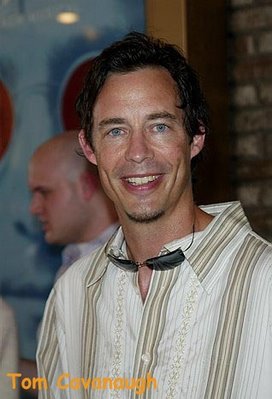 The appearance of the first gay Toronto Maple Leaf will be groundbreaking, even if it is only in celluloid.
The appearance of the first gay Toronto Maple Leaf will be groundbreaking, even if it is only in celluloid.
Actor Tom Cavanaugh plays a gay ex-Leaf in a comedy film Breakfast With Scot currently being shot in the GTA and Hamilton. He's one-half of a homosexual couple — his partner is the team lawyer — whose lives are turned upside down after becoming guardians of Scot, "a budding queen of an 11-year-old boy," according to the storyline.
What makes this movie even more unique is that the NHL and the Maple Leafs — part of a sport where no player has ever come out of the closet — have given the filmmakers their blessing to use their logos and uniforms. The Leafs have even agreed to let them do some filming with them at the end of a practice next month.
Cavanaugh, a huge hockey fan who was born in Ottawa, admits to being shocked they got the go-ahead from the league and Leaf brass. He vividly recalls his first thought when he read the script a year ago and saw in the opening scene that his character, Eric McNally, was a Maple Leaf.
"I never in a million years thought when we finally went to shooting we'd be donning Leaf sweaters," Cavanaugh said yesterday. "I thought it'd be that thing where it's the Toronto Razorbacks or whatever. There's something instant to the viewer when you put on a Leafs jersey or any Original Six jersey.
"It's harder to tell the story asking the public to remember this is supposed to be the NHL, even though we have to call it the NHA. You have to give full credit to the NHL and the Leafs for signing on. It also shows the possibility for if someone were to come out, perhaps it wouldn't be as big a deal as we think."
That remains to be seen, of course.
Leafs general manager John Ferguson, for his part, said it wasn't hard for them to give the project the go-ahead after it got the green light from the NHL, which had screened the script.
"On our end, we're certainly not trying to make a statement," said Ferguson. "We agreed to host them and we're comfortable with it."
Don Cherry, on the other hand, may not be quite as comfortable.
"I know that Gary Bettman wanted a kinder and gentler league, but this is too much," a laughing Cherry told the Star's Chris Zelkovich.
Olympic swim champion Mark Tewksbury, a board member of the Gay and Lesbian Athletics Foundation, said pro hockey has yet to be put to the acid test.
"It would be interesting to see how they would react if it was non-fiction," said Tewksbury, a Calgary native. "I think it's really great that they are supporting it. I know it's an iconic team, but I think it makes sense this is happening in Canada because we've been far ahead on these issues. The Montreal Canadiens would also probably have agreed. Calgary Flames, I'm not so sure about."
Darryl Sittler and Mats Sundin, past and current Leaf captains, are in favour of the project, which is due in theatres next Christmas.
"Obviously, it's the real world we live in and I have no issues with it at all," said Sittler. "To me, those things have come a long way and they should."
Sundin seemed taken aback at the notion of the movie, but said it was "exciting" for the Leafs to be involved in any kind of movie.
"There's never been a gay hockey player come out that I know of," Sundin told the Star's Kevin McGran. "I'm sure it's going to be talked about."
That's what producer Paul Brown is hoping for, though he's quick to point out the movie's goal is to entertain, not be laden with messages.
"It's all done with situational comedy, like how do you raise this kid when you're embarrassed to take him to school, and he's prancing around saying, `Go Panthers,' when the team's about to go to a basketball game," said Brown.
"It's a very roundabout way of tackling issues. If films become issue driven, the broader audiences for the most part become turned off of them. When you watched Bend It Like Beckham, did it become an issue movie about interracial friendships? To me, it didn't because it worked on so many levels. It became a movie about two girls on a soccer team. To us, that's sort of what we're trying to achieve."
Eric McNally, the ex-Maple Leaf played by Cavanaugh, doesn't want anyone to know about his homosexuality, but that begins to change when he becomes a guardian of young Scot, who is wrestling with his own sexuality issues. It forces him to confront what it was like for him growing up, knowing he was gay and playing a sport where it wasn't talked about and he had to suppress his feelings.
"Sports is almost like the last bastion for that hurdle to be cleared in many ways," said Cavanaugh. "It's kind of an unwritten rule in sports circles that it's just not talked about, it's just not as accepted as it is in normal society. It's a strange thing. Hockey is no different.
"One of the most interesting questions to me is how is the media going to handle it if not just a hockey name but a pre-eminent hockey name comes out and says, `I was gay.' A couple of NFL linemen have come out post-career and said, `Yeah, I was gay,' but they didn't make that disclosure during their career because in their words it would have been `suicide.'"
from The Toronto Star
 DENVER - It was a note from the Oklahoma Health Department that started the chain of events that would propel Ed Swaya and Gregory Hampel into a federal court here.
DENVER - It was a note from the Oklahoma Health Department that started the chain of events that would propel Ed Swaya and Gregory Hampel into a federal court here.
The two men, partners for 13 years, had arranged through courts in their home state of Washington to adopt their daughter, Vivian, whose Oklahoma mother had agreed to give the baby to the two men when she was born in 2002.
When the couple asked Oklahoma to issue her birth certificate, the state sent a form with spaces for the names of the mother and father. Swaya and Hampel crossed out the categories and marked themselves as "parent #1" and "parent #2."
The state didn't accept it, and sent back the form. The couple then listed Hampel as the father and Swaya as the mother. Oklahoma rejected it, writing: "We could not establish maternity for Mr. Swaya."
Nonetheless, Oklahoma's attorney general warned that the state would have to honor the legal adoption order from Washington state.
The Legislature stepped in, passing a bill prohibiting the state from acknowledging adoptions by same-sex couples from other jurisdictions, setting the stage for a legal battle that some gay rights activists fear could become increasingly common as states seek to curtail the abilities of same-sex couples to adopt children.
Battles over such adoptions date back almost 30 years, to the Florida campaign led by singer Anita Bryant that sought and achieved that state's ban on adoption by gays in 1977. But, as with same-sex marriage, the legal situation involving adoption by gays remains fragmented across the country.
A handful of states, including Utah and Mississippi, have banned such adoptions over the years, according to the American Academy of Pediatrics. Other states, including California, permit such adoptions.
Courts have dealt with these bans in conflicting ways. In December 2004, a federal judge in Little Rock, Ark., struck down the state's ban on gay foster parenting and adoptions. Weeks later, the U.S. Supreme Court declined to hear an appeal of a ruling upholding Florida's ban.
Same-sex adoptions became an issue in the governor's race in Arkansas this year, where both candidates called for reinstating the state's ban. The American Academy of Pediatrics says 16 other states discussed constitutional amendments to ban gay adoption this year.
Chris Stovall, senior legal counsel at the Alliance Defense Fund, a conservative public interest legal group, said legal issues surrounding adoption by same-sex couples were similar to those surrounding same-sex marriage. "These things are connected," he said. "Men and women do have different roles and contribute in different ways to the upbringing of a child."
Ken Upton, the attorney who sued Oklahoma for Swaya, Hampel and two other same-sex couples, also sees a similarity to the issue of same-sex marriage. "Foster care and adoption are what we see as battlegrounds in the conservative states," said Upton, a senior staff attorney for Lambda Legal, a gay rights group. "That's the next frontier for people trying to attack gay people."
Each side cites studies to bolster its stand. Opponents of gay adoption say research has shown that children thrive when they have parents of each gender. Gay rights groups say the same is true of children raised by same-sex couples, and they note that many of the largest family medicine groups, such as the American Academy of Pediatrics and the American Psychological Assn., say homosexual parenting does not have harmful effects on children.
Oklahoma already prohibited same-sex couples from adopting children when Swaya and Hampel learned through an adoption agency of a pregnant 19-year-old woman in Oklahoma City who planned to put her baby up for adoption. The couple wanted an open adoption, in which the birth mother would remain a part of their child's life. The two men flew to Oklahoma for the birth, met her family and returned to Seattle with their new daughter.
But because of the law passed in response to their quest for Vivian's birth certificate, Swaya and Hampel say, they cannot return to Oklahoma for their daughter to get to know her grandfather or other birth relatives. (They have in the past flown the birth mother to Seattle.)
"This is hurting my daughter and keeping families apart," Swaya, 37, a marriage and family counselor, said.
Swaya and Hampel sued Oklahoma, joined by two lesbian couples who adopted children in other states and then moved to Oklahoma to find those adoptions unrecognized. One couple, Lucy and Jennifer Doel, adopted their 6-year-old daughter in California in 2002. In the court case, the two cited an incident in which their daughter had to be rushed to the hospital in an ambulance and medical personnel said only the birth mother could accompany her.
Oklahoma officials could not be reached for comment last week, but in court papers they argued that their state had the right to set its own policy on adoptions by same-sex couples. They argued that the purpose of the law was "to halt the erosion of the mainstream definition of the family unit and provide the possibility for the optimal environment for the child's development in a home with a male parent and a female parent."
In May, a federal judge in Oklahoma found that the law did "little if anything to promote the traditional family unit" and attempted "to penalize the plaintiff children for the acts of their parents."
The law "in essence tells one of the adult plaintiffs, 'You are no longer the parent of your child,' " added U.S. District Court Judge Robin J. Cauthron.
On Nov. 17, the state argued before the U.S. 10th Circuit Court of Appeals in Denver that Cauthron's decision should be overturned. It could be several months before a ruling is issued.
from The Los Angeles Times
 PARIS - The days of condom-free porn on French cable television are nearing an end.
PARIS - The days of condom-free porn on French cable television are nearing an end.
Starting next year, channels will no longer be allowed to air porn with scenes of unprotected sex because it sets a dangerous example, the official French broadcasting watchdog High Audiovisual Council, or CSA, announced Wednesday.
"The risks actors take by having unprotected sex during filming are real," Aids awareness organisation Act Up wrote to the CSA in January, pressing for the change.
"These films trivialise and possibly glorify risky sex."
The CSA agreed with the activist group, moving to classify unprotected sex in pornos as "delinquent behaviour", noting that the films rarely showed sex between partners in committed, lasting relationships.
The new rule will affect nine cable channels licensed to air porn.
Movies on demand, however, won't be affected because they aren't regulated by the CSA.
from News 24

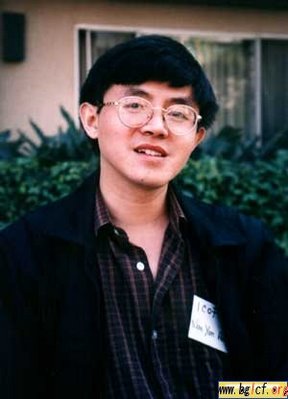 BEIJING - A prominent Chinese AIDS activist has gone missing after meeting with police, the activist's organization said Saturday, amid a suspected clampdown ahead of World AIDS Day.
BEIJING - A prominent Chinese AIDS activist has gone missing after meeting with police, the activist's organization said Saturday, amid a suspected clampdown ahead of World AIDS Day.
Four police officers showed up at the Beijing offices of Aizhi, an AIDS advocacy group, on Friday morning and questioned Wan Yanhai for much of the day, the group said in a statement on its Web site.
Around noon, with police still present, Wan ordered colleagues to cancel a symposium on AIDS, blood safety and legal rights that had been scheduled for Sunday, the group's statement said.
Wan had not been heard from since he had a brief mobile phone conversation with a colleague Friday evening, the statement said.
"The colleague asked Wan Yanhai his whereabouts, and Wan Yanhai replied that he was being questioned. Since then, his colleagues and family have lost contact with Wan Yanhai," the group said. Wan's mobile phone has been switched off.
Wan has been one of China's most dogged campaigners for AIDS awareness and effective public health policies. He has frequently angered the Communist government, which had long ignored the spread of the disease. Wan has also drawn harassment from the police.
Although Beijing launched a more open and energetic fight against AIDS two years ago, Wan's apparent disappearance highlights the government's lingering antipathy toward outspoken activists.
The government acknowledges the spread of AIDS is accelerating. The Health Ministry reported days ago that over the first 10 months of this year the number of reported HIV and AIDS cases rose nearly 30 percent, to 183,733, from 144,089 at the end of last year.
Health experts say actual cases are likely to be four to five times the reported figure.
Though it was not immediately clear what prompted police to question Wan, initial signs pointed to the now-canceled symposium on Sunday.
Wan's colleagues at Aizhi said more than 60 people, some of them AIDS sufferers and their family members, had been invited to the symposium, one of the activities marking World AIDS Day on Dec. 1.
Twice on Friday while being questioned, Wan told his colleagues to be sure any participants who had come to Beijing from elsewhere returned home, the Aizhi statement said.
"Whether this is or isn't sensitive is not by our definition. It's theirs," said Wang Lixuan of Aizhi. A colleague, who refused to disclose her name, said the group held a similar symposium a year ago before AIDS day.
In a sign that organizers were aware of possible trouble, they did not publicize the symposium's location, but told participants to come to the Aizhi office for details.
The event's topics - blood supply safety and legal rights - touch on issues of government responsibility. Several localized AIDS epidemics in China were caused by tainted blood supplies and unsanitary transfusions, and victims have struggled to win compensation from the state health system.
In recent days, state media have reported on failed attempts for legal redress by farming families from an eastern Chinese village who contracted AIDS after selling blood in the mid-1990s.
The Tongshan County court refused this month to accept their lawsuit for compensation, citing pressure from higher-level officials, according to state media reports.
Such reports are emblematic of the government's turnabout on AIDS after treating the disease with silence and ineffective policies throughout the 1990s.
Wan has been a thorn in the government's side throughout. He was sacked from a Health Ministry job in 1994 after publicly calling for AIDS education and gay rights.
He founded the Aizhi group later that year, and has since been occasionally detained.
His publicizing of another epidemic from blood transfusions, in Henan province, landed him in detention for two months in 2002.
from The Associated Press
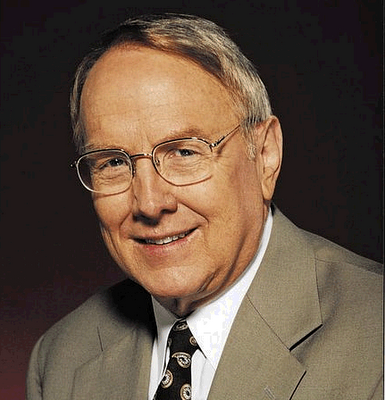 James Dobson said Wednesday that disgraced evangelical Ted Haggard was not a hypocrite for preaching against homosexuality while engaging in "sexual immorality" with a gay escort, but was a man "at war with himself."
James Dobson said Wednesday that disgraced evangelical Ted Haggard was not a hypocrite for preaching against homosexuality while engaging in "sexual immorality" with a gay escort, but was a man "at war with himself."
Dobson, the founder and chairman of Focus on the Family in Colorado Springs, told CNN's Larry King Live that evangelicals are not perfect.
"Well, he obviously was, again, at war with himself," said Dobson, a child psychologist and Christian media advocate.
"He was involved in activities that I think horrified him. He said that he fought against it, but he also knew what he believed. It was not hypocrisy. It was a struggle between behavior and a belief system."
Haggard was fired earlier this month as senior pastor from his 14,000-member New Life Church in Colorado Springs after he admitted to purchasing illegal drugs and practicing "sexual immorality" with a male escort in Denver. He also was forced to resign as leader of the powerful National Association of Evangelicals.
He is supposed to be undergoing a "restoration" and will be counseled by a three-member panel. Dobson had been picked as a panelist, but withdrew because he and Focus board members felt he simply didn't have time to aid Haggard.
Dobson strongly criticized liberals for playing judge and jury on the issue and reiterated that even evangelical Christians are not infallible. The key, Dobson said, is for those who have committed a great disservice to undergo the restoration similar to what Haggard is doing.
"Everybody gets exercised when something like this happens, and for good reason," Dobson said. "It's deceit. It's betrayal. It seems that those who are on the left approach this with glee.
"But I would say what else is new? If you just look at humankind. We're flawed. Go back to the greatest men in the Bible. Look at King David. He killed a man to get his wife for sexual purposes. He repented. He said, 'I've sinned before God.' "
Nonetheless, Dobson agreed that Haggard had managed to live a double life and keep it hidden from his family, friends and congregation.
"He sure has," he said. "That's a very sad circumstance. I feel terrible for him. I feel bad especially for his wife, Gayle - she's a wonderful lady - and their five children. We had no idea that this is the case. I've known him for many years, and this was a very private kind of thing, you know, this double life that you call it.
"It has now resulted in the loss of just about everything. His dignity, his work, his influence. He was a powerful influence in the Christian community. So we're all very very sad about that."
Dobson said he has not had contact with Haggard since the founder of New Life Church admitted his sexual escapades. A successful restoration partly will involve helping Haggard stop being gay, he said.
"That'd be part of it," he said. "It's a spiritual restoration, too. It's a personal and marital restoration. It involves every aspect of life."
Dobson quotes
• On forgiving Ted Haggard
"His sin was not against me. God has to do the forgiving. I continue to love him. He is a friend. He will always be my friend, and I'm sorry for what happened, but God has to forgive him. I mean his relationship with his wife has to be one of forgiveness. It's not my job to do that."
• On whether one becomes gay because of genetics
"What homosexual activists especially would like everybody to believe is that it is genetic. That they don't have any choice. And if it were genetic, identical twins would all have it. If you had homosexuality in one twin, it would be there in the other. So it can't be simply genetic."
• On disgraced Florida Republican Congressman Mark Foley
"That was most unfortunate. I thought the media did everything they could to discourage values voters from voting, and I don't think Mark Foley had anything to do with that."
• On Republican electoral losses
"Republicans were given a marvelous opportunity. They had a 10-vote margin in the Senate - that's about as good as it gets, and a 29-vote margin in the House. And they essentially sat on it and did very little that so-called values voters care about. And I think people remember."
• On his support for the Iraq War
"I don't believe it was a mistake. You know if you go back to World War II, people have been very critical of (President) Roosevelt for not responding earlier to the holocaust that was going on. In fact, he was tone deaf to that misery. Well, that's what was happening in Iraq. You know, Saddam Hussein killed, as far as we know, a million people. Murdered them in cold blood. And that required some kind of response. I think what the president did was right and correct to do that. But now we're in a mess, and I admit that, and I'm very concerned."
• On liberals
"Those again on the liberal end of the spectrum are those who have no value system, or at least they say there is no moral and immoral. There's no right or wrong. . . . But when a religious leader, or especially an evangelical, falls, guess who is the most judgmental of him and calling him a hypocrite? . . . Those that said there is no right and wrong in the first place. The truth of the matter is there is right and wrong. And we all within our midst have failures, and they do occur."
from The Rock Mountian News
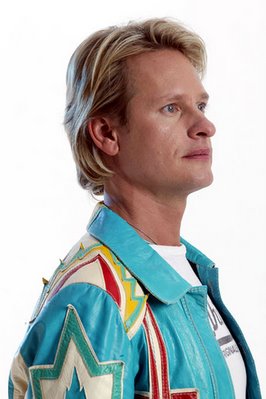 It was only a matter of time before style authority and breakout television star of "Queer Eye for the Straight Guy" Carson Kressley added fashion designer to his growing list of credentials. Kressley will launch his new collection of womenswear and menswear, Perfect by Carson Kressley, on QVC on November 29, 2006 at 9 PM ET.
It was only a matter of time before style authority and breakout television star of "Queer Eye for the Straight Guy" Carson Kressley added fashion designer to his growing list of credentials. Kressley will launch his new collection of womenswear and menswear, Perfect by Carson Kressley, on QVC on November 29, 2006 at 9 PM ET.
An industry veteran, Kressley is known for his modern and sophisticated approach to fashion, which he has translated into a "classics with a twist" line of separates and accessories. Featuring rich fabrics in fresh hues, the pieces range in price from approximately $29.25 to $197.50.
Perfect by Carson Kressley gives a nod to Kressley's passion for horses, with equestrian-inspired details like horseshoe-shaped zipper pulls on soft sweaters and ribbon trims lining jackets and pants. Colors range from neutrals such as sage green and chocolate brown to brighter hues of palest pink and periwinkle.
"From my work as a stylist with Ralph Lauren and then during the `Queer Eye' years, I realized a lot of people are missing great basics in their wardrobe," said Carson Kressley. "I consider my Perfect collection for QVC to be 'basics with a twist.' They take the panic out of getting dressed in the morning and I love that I will be able to show QVC customers how to make them work in fresh, new ways."
Perfect by Carson Kressley for women includes career staples such as the quintessential navy suit and a tailored print blouse, along with casual wardrobe essentials like a tailored dark denim skirt and polo sweater. In addition, Kressley designed outerwear pieces such as a luxe leather jacket in camel and a trench coat perfect for those in-between days.
For men, Perfect by Carson Kressley focuses on rich outerwear pieces, including bomber jackets, touring coats and vests that pair effortlessly with pullover sweaters.
"Carson's fashion background has made him a style expert people have come to trust," says Annette Repasch, vice president of QVC merchandising. "He has a wonderful eye for detail, which comes across in the collection. I think women will appreciate the versatility of the line and respond to his unmistakable charm."
from Press Release

 PROVIDENCE, RHODE ISLAND - A lesbian couple married in Massachusetts has filed for divorce in Rhode Island, setting up a legal conundrum for judges in a state where the laws are silent on the legality of same-sex marriage.
PROVIDENCE, RHODE ISLAND - A lesbian couple married in Massachusetts has filed for divorce in Rhode Island, setting up a legal conundrum for judges in a state where the laws are silent on the legality of same-sex marriage.
Margaret Chambers and Cassandra Ormiston of Providence were married after the Massachusetts Supreme Judicial Court legalized gay marriage starting in 2004.
They filed for divorce in Rhode Island on Oct. 23, citing irreconcilable differences, Chambers' attorney, Louis Pulner, said Wednesday. Ormiston declined to comment.
Rhode Island Family Court Chief Judge Jeremiah Jeremiah Jr. has yet to decide whether his court has jurisdiction and said he believes it is the first filing for a same-sex divorce in the state. A preliminary hearing was scheduled for Dec. 5.
Massachusetts became the only state to allow same-sex couples to marry after the state Supreme Court ruled it was unconstitutional to ban it.
Until recently, though, it was up in the air whether out-of-state couples could marry in Massachusetts. In September, a Massachusetts judge decided that nothing in Rhode Island law specifically banned gay marriage and said Rhode Island couples could legally marry there.
"Now the ultimate question is whether the state will recognize or determine whether it has jurisdiction to handle an out-of-state divorce when we don't have any case law that accepts or rejects same-sex marriage," Pulner said.
Rhode Island Attorney General Patrick Lynch said it is up to the courts and legislature to decide whether the state recognizes same-sex unions.
Courts nationwide could soon find themselves facing similar dilemmas, especially as more and more same-sex couples are married in Massachusetts, said Janet Halley, a professor at Harvard Law School who researches the topic. Marital status could potentially become an issue in insurance, benefit, child custody and property cases, among others.
Massachusetts is the only state that allows gay marriage.
from The Long Beach Press Telegram
 After years of painstaking research, scientists say they have unleashed a baby boom among one of the world's most beloved but endangered animals, China's giant panda.
After years of painstaking research, scientists say they have unleashed a baby boom among one of the world's most beloved but endangered animals, China's giant panda.
A bit of panda porn has helped too, they say.
"It works," enthuses Zhang Zhihe, a leading Chinese expert, about showing uninitiated males DVDs of fellow pandas mating.
It is one of many techniques tried over the decades to get captive pandas — notoriously poor breeders — to do it, and do it right. The efforts to understand and simulate conditions for mating and raising cubs have paid off in China, the panda's native habitat. Now comes the next test: getting the magic to work outside China.
The big day will come in January, when Prasertsak Buntragulpoontawee hopes to bring off a successful mating between male Chuang Chuang and partner Lin Hui in this northern Thailand city.
The audio-visual approach "is the same idea as chimpanzees seeing people smoke and then copying it," says the Thai researcher.
Zhang, director of the Chengdu Research Base of Giant Panda Breeding, attributes this year's record high births not to any single breakthrough but to an accumulation of research on panda biology, nutrition and genetics while "trying to imitate nature better."
The result, by his count: In the first 10 months of this year 31 cubs were born in captivity in China, of which 28 survived. That's up from 12 births in 2005 and just nine in 2000. Of this year's births, 14 came through natural breeding, while artificial insemination or a combination of the two produced the rest.
No cubs were born among the roughly 20 pandas outside China, but sperm from Atlanta Zoo's Yang Yang yielded an offspring for Lun Lun in Chengdu, China, Zhang told a conference here of 140 panda experts.
JoGayle Howard, an animal reproduction specialist at the Smithsonian Institution in Washington, D.C., said the goal of raising the captive breeding population to 300 from the current 220 is rapidly being reached. This would prevent inbreeding, widen the genetic pool and enable more captive animals to re-enter the wild, where the panda population is estimated at 1,600 to 3,000.
Howard said the biggest challenges in panda breeding are an extremely high rate of incompatibility and the very narrow window of opportunity — females are ready to mate for as few as 48 hours a year.
"At first people thought that you just put two animals together and they would figure it out. But it didn't turn out that way," she said. "Now we know how to take care of the panda better. We've really made progress. But we're still learning a lot of even basic things."
Captive animals used to lack proper socialization; with no companions around, when the male and female met for breeding "they just freaked out and fought," Howard said. Now enclosures are bigger and contain more animals.
There's also a push to keep cubs with their mothers longer, for up to two years, to give them more natural sex education.
Scientists have also learned more about sex and aggression. In the wild, Howard explains, females in heat will climb a tree while suitors below fight for her. In captivity, with no male rivals around, pandas often take out their aggression on the female.
Adds Zhang: "In the wild they have their own choices when mating. But when we breed them in captivity it's like taking two human beings and forcing them to mate."
But despite the advances, there are still only about 15 captive male adults which breed naturally. Second best is artificial insemination, and after years of study frozen semen can now be shipped around the world and applied according to a comprehensive genetic database.
Prasertsak is prepared to use both methods as he readies his couple for mating at Chiang Mai Zoo, which has rented the animals from China for research and tourism purposes.
The pressure is on. Last year Lin Hui showed promising symptoms but they turned out to be a pseudo-pregnancy, not unusual among pandas.
Will the blue movies help?
Opinions differ on the visuals, but Zhang and Prasertsak agree on the sound track.
"It's the sounds of breeding that stimulate them," Zhang said. "Pandas are just like human beings. They understand everything."
from My Fox DC
 Mike Jones hates the word "prostitute.''
Mike Jones hates the word "prostitute.''
''I was an escort, all right? Not everyone I went with wanted sex,'' said Jones, who this month brought down evangelist Ted Haggard. "I think I give escorts a good name.''
Jones just spent three days in Miami Beach, where he did a photo shoot and interview for an upcoming book by South Florida writers David Leddick and Heriberto Sanchez and photographer David Vance. The title: Escort.
''Forty profiles with photographs of men who sell sex. I'm not taking a moral position myself. It's fascinating,'' said Leddick, who finds the escorts in magazine and website ads.
Each escort in the book will be paid $100 and get copies of his photos, he said.
Jones, 49, is Leddick's star. Three weeks ago, the muscular massage therapist went public and told the world that he had a three-year relationship with Haggard -- married president of the 30-million member National Association of Evangelicals, a confidante of President Bush and a leader in the anti-gay political movement.
Haggard, 50, paid $200 cash per session, ''plus tips,'' said Jones, who said he also helped Haggard buy methamphetamine.
At first, Haggard denied even knowing Jones. Within days of the scandal breaking on Nov. 2, Haggard amended his story, saying that he had paid Jones only for a massage and that he did buy meth -- but that he had thrown it away, unused. The reverend soon resigned from all church leadership positions and publicly called himself ``a deceiver and a liar.''
Jones said a man named Art first called him about three years ago.
Six months ago, Jones saw Haggard on television discussing the Antichrist. 'I said, `Oh my God, that's Art!' ''
Haggard helped lead a successful election battle this month to ban gay marriage in Colorado. ''He was reaching millions of people and that was difficult for me to swallow,'' said Jones, who decided to out Haggard at a local newspaper and radio station.
Jones life has ''been a whirlwind'' the past few weeks since he has become a minor celebrity.
Many, though, decry him for ruining Haggard's career and hurting the reverend's family.
''People have scolded me for that, particularly right-wing people,'' Jones said. 'But did Ted Haggard go to his wife and say, `I'm going to have a gay affair. Is this going to hurt you and the kids?' I don't want to have this guilt over my head.''
Jones' fellow sex workers are not happy, either.
''All the escorts are [angry] with me. This was such a unique situation. I could have ruined many careers in my day. A lot of politicians and athletes and clergy. But none of them got up and ranted and raved about homosexuality,'' he said.
Jones said his relationship with Haggard was strictly business.
Jones says that he retired from sex work two years ago, but that Haggard ''begged me'' to continue their sessions.
''I'm sure he regrets begging me now,'' he said.
Jones got into the sex business as a young gay man.
''Gosh, when I started going to bars, I had a fake ID at 19,'' Jones said. ``As time went on, more and more people offered me money.''
Jones eventually posed nude for gay men's magazines and made one porn film. He doesn't remember the title.
He has no issues with getting paid for sex and says prostitution should be legal.
Still, he holds being an escort above being a street prostitute.
''That's what people have in their heads, streetwalkers and such. I never, never did that,'' he said. 'I hate to use the word, `classier,' but it is in a way.''
from The Miami Herald
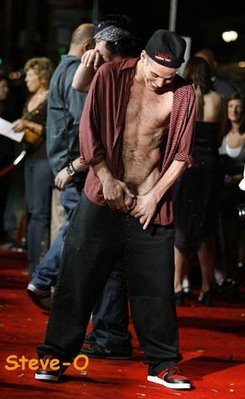 'Jackass' star Steve-O has confessed he once kissed his co-star Chris Pontius' penis - but insists he is not "gay".
'Jackass' star Steve-O has confessed he once kissed his co-star Chris Pontius' penis - but insists he is not "gay".
The outrageous daredevil is adamant the prank does not mean he has homosexual tendencies because it was done as a joke for 'Jackass'.
He told More magazine: "The naughtiest thing I've ever done is kissed the head of Chris Pontius' penis one time. But that was just for the cameras. It's not really gay if your mates are filming it."
Steve-O has also bragged he is a fantastic lover and claims it doesn't take him more than one minute to satisfy a woman.
He said: "A lot can happen in a minute!"
Earlier this week, Steve-O slammed Kevin Federline for neglecting his responsibilities as a father. The wild prankster claimed Kevin had been out partying with him soon after his now estranged wife Britney Spears gave birth to their second son Jayden James.
Steve-O said: "I thought it was funny that I heard he just had a kid, but he was out with us getting wasted in Las Vegas."
from Eye On Gambling

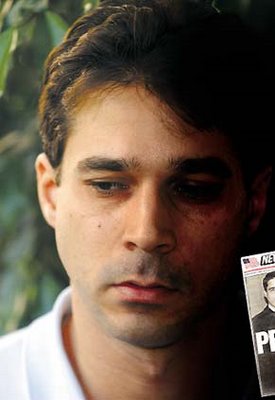 NEW YORK - When he resigned from office in 2004, then-Gov. James E. McGreevey, D-N.J., said that he was "a gay American" and that he had been in a consensual relationship with another man. In his 2006 autobiography, "The Confession," McGreevey provided details of the alleged affair. The man with whom he claimed he had been romantically involved, former aide Golan Cipel, granted his first television interview to CBS 2's Jim Rosenfield in November 2006.
NEW YORK - When he resigned from office in 2004, then-Gov. James E. McGreevey, D-N.J., said that he was "a gay American" and that he had been in a consensual relationship with another man. In his 2006 autobiography, "The Confession," McGreevey provided details of the alleged affair. The man with whom he claimed he had been romantically involved, former aide Golan Cipel, granted his first television interview to CBS 2's Jim Rosenfield in November 2006.
Here is the transcript of Part 1 of Rosenfield's report:
Cipel: Today I understand that he was tying a web around me from day one. But at that time, I didn't see it coming.
Rosenfield: This is your first time back here in how long?
Cipel: Several years. Brings back a lot of bad memories.
Rosenfield Voiceover: The "bad memories," as Golan Cipel calls them, came flooding back -- with apparent razor-sharp clarity.
Cipel: Looks a little different now, but the layout is still the same.
Rosenfield Voiceover: For the first time, Cipel shows us inside the modest two-bedroom condo in Woodbridge, where McGreevey lived as governor-elect. McGreevey's handpicked aide says he wanted to come back to the place where he says his boss crossed the line five years ago. In McGreevey's book, "The Confession," listen as he describes the encounter as passionate:
McGreevey, from "The Confession": I Took Golan by the hand and led him upstairs to my bed… We made love like I'd always dreamed.
Rosenfield Voiceover: But Golan Cipel insists there was no romance here, no handholding, no passionate kiss, no falling asleep on the pillow. What he said took place here was sexual harassment.
Cipel: And he said, "Just before you leave, I have something upstairs work-related and I need to give it to you." I'm behind the Governor...
Rosenfield Voiceover: But as Cipel began to show us what he says happened here, he froze on the landing.
Rosenfield: This is the first time you've been on this staircase since it happened?
Cipel: (sigh) I feel like this is the spot where my life ended, the way I planned it to be, the way I believed it to be and it's never going to be the same. (sigh) When you plan a life, everybody has dreams. You think you know, most people are good and you don't think bad things can happen to you. And to think of so many months and years I think about this moment and I think how do you let it happen? How did this guy manage to fool you and fool everybody else?
Rosenfield Voiceover: So, how did it all begin? In 1999, then-Woodbridge Mayor Jim McGreevey was on an official trip to Israel and met Cipel, a spokesperson for a local municipality outside Tel Aviv.
Rosenfield: What was your impression of him, initially?
Cipel: I think that the impression was that he was a nice guy. Very simple. Um, nothing, no red lights, no alarms, nothing that you can suspect....
And at a certain point he said, "You know I'm thinking of running again. And I'm starting to build my campaign. And I have this group of young men that I'm gathering now, to work with me. And I think you would just perfectly fit there."
Rosenfield: This is the first day you met him?
Cipel: This is the first couple of hours that I met him.
McGreevey, from "The Confession": My attraction to him was immediate and intense and apparently reciprocated. From the minute I walked in the building I felt it.
Rosenfield: What part of that is true?
Cipel: Well, the part of uh, mutual attraction absolutely is not true.
Rosenfield: When did it start to occur to you that maybe there was something going on here that you weren't comfortable with as far as you described?
Cipel: Only in the first incident. Until then I had no idea.
Rosenfield Voiceover: Cipel joined the new administration as a special counselor to the governor. His duties included the now-infamous job of liaison on homeland security issues, a role which McGreevey admits he foolishly exaggerated, and led to Cipel's eventual resignation.
Cipel: I didn't suspect anything.
Rosenfield Voiceover: Back to that night in Woodbridge. Cipel says the two men were alone at McGreevey's apartment. McGreevey's expectant wife, Dina, was in the hospital.
Cipel: And I just remember holding back here and saying what's going on. Again he pushed me on the chest back into the bedroom. I was in shock and I fell. And there was just this crazy look in his eyes. Didn't care. Tried to struggle with me. Tried to kiss me. I just remember holding my head and saying, "No. Stop." Fighting with him. And I moved to the other side of the bed here. And he was there where you stand. And I wanted to get out. But he's close to the door. I just remember wanting to ask him so many questions, but wanting to leave as fast as possible. And he said don't ever repeat this to anybody. Then I asked him, "Why did you think I was gay?" And he said, "Everybody's a little bit gay."
Rosenfield: Why didn't you go to the police?
Rosenfield: The thought crossed my mind. Again, I didn't have a chance. The people McGreevey knew. He was the mayor of this town.
Rosenfield: Did you have any proof about what happened here?
Rosenfield: No, no proof. ... If you asked me, before that happened, what would you do if a man was sexually attacking you, I would say I would punch him in the mouth. But the truth is, I didn't. I froze.
Rosenfield On Set: Cipel says they never actually had sex and he kept silent about that night for two years, before finally deciding after two other supposed incidents to file a sex harassment lawsuit against the governor. But the governor resigned and the suit was never filed.
An attorney for Jim McGreevey told me lawyers for Cipel initially demanded $50 million, in exchange for Cipel's silence. But when Cipel's lawyer failed to provide any proof to back up Cipel's claims, the talks ended.
In a statement to CBS 2, McGreevey said:
I stand behind the truth and accuracy of the entirety of the book. The book is an honest and painful story of the dangers of leading a divided life. The principal lesson is the need to be honest with one's family and friends, but most importantly with one's self. My relationship with Mr. Cipel lasted for a number of months. It was entirely consensual and I wish that he only finds peace in his life.
from WCBS TV


 SANTA ANA - A former student who took pictures of couples hugging at his Garden Grove high school to bolster claims that gay but not straight students were punished for the display of affection testified Tuesday that he had no proof administrators saw but ignored the acts among heterosexuals.
SANTA ANA - A former student who took pictures of couples hugging at his Garden Grove high school to bolster claims that gay but not straight students were punished for the display of affection testified Tuesday that he had no proof administrators saw but ignored the acts among heterosexuals. Helping to end a longstanding clinical debate, a new study finds that stopping and then restarting HIV drug therapy doesn't work.
Helping to end a longstanding clinical debate, a new study finds that stopping and then restarting HIV drug therapy doesn't work. BAGUIO CITY, PHILIPPINES - Motorists trapped in the late afternoon rush hour were shocked on Thursday when artists, nursing students and gender rights activists wove through traffic along downtown Baguio carrying a 30-foot condom on their shoulders.
BAGUIO CITY, PHILIPPINES - Motorists trapped in the late afternoon rush hour were shocked on Thursday when artists, nursing students and gender rights activists wove through traffic along downtown Baguio carrying a 30-foot condom on their shoulders. Rabbi Elliot Dorff concedes that his opinions about ordaining gays and restricting some sexual activity are likely to upset both traditionalists and liberals in Judaism's Conservative movement.
Rabbi Elliot Dorff concedes that his opinions about ordaining gays and restricting some sexual activity are likely to upset both traditionalists and liberals in Judaism's Conservative movement.
 BURLINGTON, VERMONT - A judge has dismissed hazing charges against four University of Vermont fraternity members accused of making prospective members wear cowboy outfits while they were taunted with homophobic language.
BURLINGTON, VERMONT - A judge has dismissed hazing charges against four University of Vermont fraternity members accused of making prospective members wear cowboy outfits while they were taunted with homophobic language.

 Daniel Craig is urging movie bosses to revolutionise the James Bond franchise by including a gay scene involving the superspy in the follow-up to Casino Royale. The heart-throb actor has also reportedly told studio chiefs he is prepared to film a full frontal nude scene to please both his male and female admirers. He says, "Why not? I think in this day and age, fans would have accepted it. "I mean, look at (British TV series) Doctor Who that has had gay scenes in it and no one blinks an eye."
Daniel Craig is urging movie bosses to revolutionise the James Bond franchise by including a gay scene involving the superspy in the follow-up to Casino Royale. The heart-throb actor has also reportedly told studio chiefs he is prepared to film a full frontal nude scene to please both his male and female admirers. He says, "Why not? I think in this day and age, fans would have accepted it. "I mean, look at (British TV series) Doctor Who that has had gay scenes in it and no one blinks an eye." In a major new development confirming our theory that radical gay activists were behind the Mark Foley scandal, the mysterious source responsible for exposing Foley's behavior has been identified as an employee of the Human Rights Campaign. This is the radical homosexual organization that functions as an adjunct of the national Democratic Party.
In a major new development confirming our theory that radical gay activists were behind the Mark Foley scandal, the mysterious source responsible for exposing Foley's behavior has been identified as an employee of the Human Rights Campaign. This is the radical homosexual organization that functions as an adjunct of the national Democratic Party. MINNEAPOLIS - A city panel recommended Tuesday that officials fire Bonnie Bleskachek, the nation's first openly lesbian big-city fire chief, in the wake of firefighter lawsuits accusing her of harassment and discrimination.
MINNEAPOLIS - A city panel recommended Tuesday that officials fire Bonnie Bleskachek, the nation's first openly lesbian big-city fire chief, in the wake of firefighter lawsuits accusing her of harassment and discrimination.
 DENVER - The attorney for a former male prostitute who says he had sex with disgraced Colorado Springs pastor Ted Haggard says he doesn't expect his client will face criminal charges.
DENVER - The attorney for a former male prostitute who says he had sex with disgraced Colorado Springs pastor Ted Haggard says he doesn't expect his client will face criminal charges. LOS ANGELES - A heterosexual former Los Angeles police officer is suing the department, alleging she was fired after complaining about alleged discrimination by her gay supervisors, according to court papers obtained Monday.
LOS ANGELES - A heterosexual former Los Angeles police officer is suing the department, alleging she was fired after complaining about alleged discrimination by her gay supervisors, according to court papers obtained Monday. In a story unusual even for a soap opera and believed to be a television first, ABC's "All My Children" this week will introduce a transgender character who is beginning to make the transition from a man into a woman.
In a story unusual even for a soap opera and believed to be a television first, ABC's "All My Children" this week will introduce a transgender character who is beginning to make the transition from a man into a woman.
 UNITED KINGDOM - British scientists have developed a revolutionary pill that men could take as a one-off contraceptive just before a date.
UNITED KINGDOM - British scientists have developed a revolutionary pill that men could take as a one-off contraceptive just before a date. Tall men face double the risk of developing testicular cancer, according to new research.
Tall men face double the risk of developing testicular cancer, according to new research. Sacha Baron Cohen's "Borat" has grossed more than $100 million at the box office, but can the British comedian pull off another "mockumentary," this time in the guise of a gay Austrian fashionista?
Sacha Baron Cohen's "Borat" has grossed more than $100 million at the box office, but can the British comedian pull off another "mockumentary," this time in the guise of a gay Austrian fashionista? LONDON, ENGLAND - A study conducted by the Cancer Research U.K. has found that the number of young British men who have their testicles checked for signs of cancer, has tripled in the last decade.
LONDON, ENGLAND - A study conducted by the Cancer Research U.K. has found that the number of young British men who have their testicles checked for signs of cancer, has tripled in the last decade. The appearance of the first gay Toronto Maple Leaf will be groundbreaking, even if it is only in celluloid.
The appearance of the first gay Toronto Maple Leaf will be groundbreaking, even if it is only in celluloid. DENVER - It was a note from the Oklahoma Health Department that started the chain of events that would propel Ed Swaya and Gregory Hampel into a federal court here.
DENVER - It was a note from the Oklahoma Health Department that started the chain of events that would propel Ed Swaya and Gregory Hampel into a federal court here. PARIS - The days of condom-free porn on French cable television are nearing an end.
PARIS - The days of condom-free porn on French cable television are nearing an end.
 BEIJING - A prominent Chinese AIDS activist has gone missing after meeting with police, the activist's organization said Saturday, amid a suspected clampdown ahead of World AIDS Day.
BEIJING - A prominent Chinese AIDS activist has gone missing after meeting with police, the activist's organization said Saturday, amid a suspected clampdown ahead of World AIDS Day. James Dobson said Wednesday that disgraced evangelical Ted Haggard was not a hypocrite for preaching against homosexuality while engaging in "sexual immorality" with a gay escort, but was a man "at war with himself."
James Dobson said Wednesday that disgraced evangelical Ted Haggard was not a hypocrite for preaching against homosexuality while engaging in "sexual immorality" with a gay escort, but was a man "at war with himself." It was only a matter of time before style authority and breakout television star of "Queer Eye for the Straight Guy" Carson Kressley added fashion designer to his growing list of credentials. Kressley will launch his new collection of womenswear and menswear, Perfect by Carson Kressley, on QVC on November 29, 2006 at 9 PM ET.
It was only a matter of time before style authority and breakout television star of "Queer Eye for the Straight Guy" Carson Kressley added fashion designer to his growing list of credentials. Kressley will launch his new collection of womenswear and menswear, Perfect by Carson Kressley, on QVC on November 29, 2006 at 9 PM ET.
 PROVIDENCE, RHODE ISLAND - A lesbian couple married in Massachusetts has filed for divorce in Rhode Island, setting up a legal conundrum for judges in a state where the laws are silent on the legality of same-sex marriage.
PROVIDENCE, RHODE ISLAND - A lesbian couple married in Massachusetts has filed for divorce in Rhode Island, setting up a legal conundrum for judges in a state where the laws are silent on the legality of same-sex marriage. After years of painstaking research, scientists say they have unleashed a baby boom among one of the world's most beloved but endangered animals, China's giant panda.
After years of painstaking research, scientists say they have unleashed a baby boom among one of the world's most beloved but endangered animals, China's giant panda. Mike Jones hates the word "prostitute.''
Mike Jones hates the word "prostitute.'' 'Jackass' star Steve-O has confessed he once kissed his co-star Chris Pontius' penis - but insists he is not "gay".
'Jackass' star Steve-O has confessed he once kissed his co-star Chris Pontius' penis - but insists he is not "gay".
 NEW YORK - When he resigned from office in 2004, then-Gov. James E. McGreevey, D-N.J., said that he was "a gay American" and that he had been in a consensual relationship with another man. In his 2006 autobiography, "The Confession," McGreevey provided details of the alleged affair. The man with whom he claimed he had been romantically involved, former aide Golan Cipel, granted his first television interview to CBS 2's Jim Rosenfield in November 2006.
NEW YORK - When he resigned from office in 2004, then-Gov. James E. McGreevey, D-N.J., said that he was "a gay American" and that he had been in a consensual relationship with another man. In his 2006 autobiography, "The Confession," McGreevey provided details of the alleged affair. The man with whom he claimed he had been romantically involved, former aide Golan Cipel, granted his first television interview to CBS 2's Jim Rosenfield in November 2006.